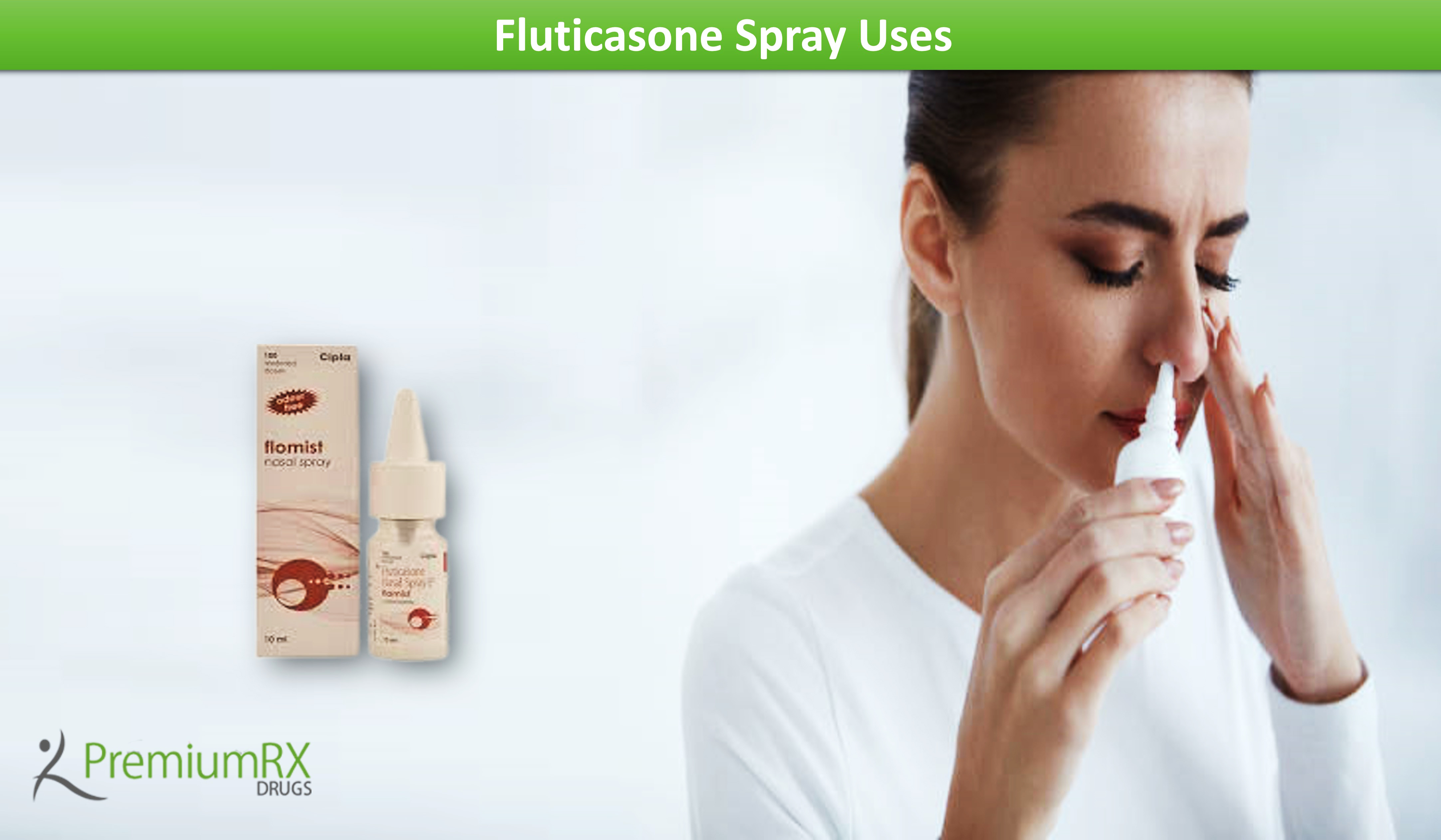Fluticasone is a drug used to manage and treat asthma, emphysema, allergic rhinitis, and atopic dermatitis. It belongs to the corticosteroid class of drugs, and these drugs help reduce inflammation. Due to this effect, people can use a spray form of fluticasone propionate to treat inflammatory conditions such as asthma. The article explains what fluticasone propionate spray is, how effective it is, and how to use it. This article will also cover its safety, including potential side effects and drug interactions.
What is it?
Fluticasone is a type of corticosteroid which helps to reduce inflammation in the body. It is available as a nasal spray for the treatment of allergic rhinitis. With this condition, inflammation occurs in the internal nasal cavity because of breathing in allergens, such as mould, dust, or pollen. The medicine reduces irritation and inflammation in the body. The nasal spray is available over the counter and with a prescription.
How should you use this medicine?
Follow the directions given by your health care specialist to experience the best results. The nasal drug works nicely if used at regular intervals. Do not use more than directed. Make sure you are correctly using the nasal spray. After six months of regular use for allergies, speak to your doctor before using it for a longer time. Consult a health care specialist if you have any questions.
Talk to your paediatrician regarding the use of this medicine in children. Special care may be required. Some medicines have been used for allergies in children as young as two years. After two months of regular usage without a prescription for a child, speak to your paediatrician before using for a longer duration. The use of Fluticasone for nasal polyps is not approved in children.
Before you use Fluticasone spray, your health care professional should need to know if you have any of these conditions:
- Eye disorder, vision problems
- Infections like herpes, tuberculosis, or fungal infection
- Sinuses or recent surgery on the nose
- Taking a corticosteroid orally
- An allergic reaction to Fluticasone, foods, dyes, steroids,
- Pregnant or trying to get pregnant
- Breastfeeding
What may interact with Fluticasone Nasal Spray?
Following medication can affect the way Fluticasone propionate works:
- Certain antibiotics like telithromycin and clarithromycin
- certain medications for fungal infections like itraconazole, ketoconazole, and voriconazole
- Some medicines for HIV
- Nefazodone
- Conivaptan
- Vaccines
This list of drugs may not prescribe all possible drug interactions. Give your doctor the complete list of all the pharmaceuticals, herbal products, non-prescription medicines, or supplements you use. Also, inform them if you drink alcohol, smoke, or use illegal drugs. Some medications may interact with your medicine.
What should you be careful about while using this Nasal Spray?
Visit your health care professional for regular checks on your progress. Let your health care professional know if your symptoms do not improve or if it gets worse.
The nasal spray may make you more likely to get an infection. Let your health care provider know if you are around anyone with chickenpox and measle or if you develop blisters or sores that do not improve properly.
What side effects you may notice from receiving Fluticasone?
Adverse reactions that you should report to your health care provider as soon as possible:
- Allergic reactions like hives, itching, skin rash, swelling of the face, lips, or tongue
- Nosebleed
- Changes in vision
- Crusting or sores in the nose
- White patches in the mouth or nose
- Signs and symptoms of infection like cough, chills, cough, sore throat
Adverse reactions that usually do not require medical attention are cough, headache, burning or irritation inside the nose or throat, or changes in the taste. This list may not include all side effects. Discuss with your doctor for medical advice about side effects.
Conclusion
Fluticasone nasal spray is a steroid medication for cold-like symptoms caused by allergic rhinitis. It helps reduce the inflammation inside your nose due to hay fever. You need to use the pit regularly for it to work. For best results, follow the instructions that come with your nasal drops. Like any other medicine, Fluticasone may too cause side effects. Talk to your doctor if any side effect becomes troublesome or persists for longer.
Marie
Latest posts by Marie (see all)
- Guide for Careprost as Eyelash Enhancer – Benefits, Usage, Side Effects - July 3, 2025
- Eptoin 50mg Uses, Precautions and Side Effects - July 1, 2025
- Eyelash Goals Unlocked: Why Careprost Is the Ultimate Solution. - June 30, 2025




